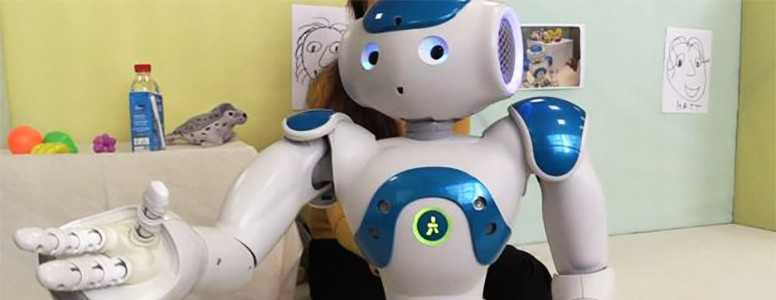A robot is being developed to help young children learn to manage their type 1 diabetes.
The robot, called Robin (pictured, short for “Robot Infant”), mimics a diabetic toddler and can teach children aged between seven and 12 to recognise symptoms of hypoglycemia (low blood sugar).
The robot’s development is part of the ALIZ-E programmen, which began in Italy in 2010. Researchers from all over Europe have helped create the robot; the University of Hertfordshire developed Robin’s emotion, and Imperial College London worked on machine learning.
Dr. Lola Canamero and Dr. Matthew-Lewis, University of Hertfordshire, designed and wrote the robot’s character. Robin wants to play with toys, dances, gets tired and asks for hugs – behaviours that toddlers exhibit.
The developers believe this relatability is important in teaching children to remember to treat their diabetes, and boosts their confidence.
Canamero said that “children love robots, they really relate to them very quickly. We ask [children] to look after Robi, to play, and while they’re doing that Robin shows symptoms of diabetes that the children have to learn to recognise and then they have to think what to do about that.”
Lewis added: “We try to give [children] a sense of responsibility and let them bond with the robot to understand that their actions can help with his diabetes and reinforce the sort of behaviours we’d like to see in them.”
So far, interactions between Robin and children with diabetes have been limited, but researchers are developing the robot so that it can eventually be used by children in the UK.
“We would like to try multiple interactions; so far children have only spent half an hour with Robin in just one session. We’d like to have them interact with him several times and feel that they’ve improved,” Lewis said.
“There are a limited number of behaviours Robin has at the moment which are sufficient for a half hour interaction but, for example, Robin only has a small number of words that he speaks. He also doesn’t respond to noises.”
The next stage of planning involves continued fundraising for Robin’s development, as well as for increased public engagement.
Diabetes UK spokesman Simon O’Neill said that the charity had “been watching the development of Robin with great interest”.
O’Neill added: “It’s really exciting to see this type of technology being used to help children accept and become more confident about their diabetes.”
Picture: BBC News
What's new on the forum? ⭐️
Get our free newsletters
Stay up to date with the latest news, research and breakthroughs.




